jazz
noun
a type of music of black American origin which emerged at the beginning of the 20th century, characterized by improvisation, syncopation, and usually a regular or forceful rhythm. Brass and woodwind instruments and piano are particularly associated with jazz, although guitar and occasionally violin are also used; styles include Dixieland, swing, bebop, and free jazz.
reprise
verb
repeat (a piece of music or a performance)."he reprises his role as the vigilante architect"
It’s been so long in the making it feels crazy that episode two has come around already! Editing and listening back to our conversation I feel very privileged to have had Victoria Adukwei Bulley as a guest.
The shot we revisit is jazz but it could very easily have been named legacy. I was very much enamoured with the idea of how I might remain or linger on after death. Since I was a child I’ve spent a lot of time thinking about death.
I’ve spent a lot of time fearing what happens after we die. At present I think I’m more accepting of that inevitability and spend a lot of time thinking about the meaningfulness of my present. My relationship to death is shifting (for the time being) into a concern about legacy.
When I was deciding who I wanted to talk to about legacy Victoria immediately came to mind. One of the reasons was because at the time she’d just become a mother and just released her debut collection. As a human and a writer she was at a pivotal point.
The context felt right but Victoria is also someone I enjoy talking to. I’ve left several conversations with Victoria and thought it’s a shame other people didn’t get to hear that. Everything Victoria carries she carries with care and consideration. Her ability to do that means I always leave her feeling edified.
In this shot we talk about jazz, climate change, legacy in all its forms and much much more. I hope you enjoy listening to this episode as much as I did making it.
P.S. If you’re not a paid subscriber and you can’t wait till tomorrow to listen to the next episode you know what to do.
jazz
noun
a type of music of black American origin which emerged at the beginning of the 20th century, characterized by improvisation, syncopation, and usually a regular or forceful rhythm. Brass and woodwind instruments and piano are particularly associated with jazz, although guitar and occasionally violin are also used; styles include Dixieland, swing, bebop, and free jazz.
In PN Review 196— gifted to me by Jacob Sam-La Rose during a Barbican Young Poets session one year— Neil Powell opens a report on Philip Larkin with a sentence that has always stayed with me. Now truthfully I’ve never read the whole report, the first sentence was so good I never felt the need to.
Neil states boldly at the beginning of his report that ‘What will survive of us is jazz.’ When everything burns away and humanity is done defiling the earth, when man’s thorough ravishing of this planet is through and we’ve ravished ourselves too, what will survive of us is jazz. People will linger on this planet the same way notes from a saxophone linger in the soul well after they’ve been played. I liked that thought, even if as a society we don’t deserve it.
I was born blue due to my umbilical cord being wrapped around my neck. I have a poem about it. In it I’m not exactly remembering the event, though that would be some memory to have. The poem is me wondering what my parents would’ve done ‘if my neck had gone limp like a wilted candle wick.’ I hope they would’ve moved on, the memory of me passing away in the same way a candle burns out— ‘only a scent left, something like cocoa butter and rum.’
Before coming upstairs to write this I was finishing up a load of washing and I was sad. Sad is a simple adjective that doesn’t really do much to explain exactly how I was feeling. I like it that way, I was feeling down and that’s all you need to know.
Whilst unloading my washed clothes into a basket I listened to a jazz classics playlist on my bluetooth earphones. On The Sunny Side Of The Street by Dizzy Gillespie came on and a strange thing happened– my sadness drifted away as the song entered my body. It was as though there was no space for sadness whilst these instruments combined to make music in my ears. There was an extra pep to my step as I finished unloading the last of my clothes.
I decided to read the first paragraph of Neil Powell’s report. I’d already taken the PN Review from my bookshelf to make sure I’d got the quote exactly right. Powell talks about how jazz is the best way for Larkin to be remembered. In the first paragraph he quotes Larkin ‘I have a weakness for the entertainers of jazz.’ I don’t think it’s outlandish to speculate that perhaps Larkin hoped to linger in the air like the notes from Dizzy Gillespie’s trumpet.
The first book I read in 2022 was Chimamanda Ngozi Adichie’s Notes On Grief. It’s a book I expect I’ll be returning to frequently and I don’t think I’ll be the only one. She articulates things about loss that I’ve felt but never been able to say. Grief is a time where you usually don’t want to be seen but Chimamanda makes herself visible during the recent passing of her father. It’s a true privilege.
The fourth book I’m reading this year is The Lovely Bones which is about a family continuing to live after the murder of their fourteen year old daughter Susie. I seem to have opened the year on a death flex completely unprovoked. What’s apparent to me after reading these two books and thinking back on my own experience is that when people die they don’t disappear. They are without question gone– the permanence of their absence is a physical pain you don’t heal from— but they still remain.
When I thought about the alternate reality where I died as a baby, I imagined what was left of me was a scent. Perhaps because a scent is both physical and not at the same time, unseen but most definitely there. Neil Powell said ‘what will survive of us is jazz’ which feels too bold a statement, but maybe exactly what we should all want.
As a non expert listening to the baitest Spotify curated jazz playlist forgive me if I go too far. However I find there’s a depth of feeling and emotion jazz manages to evoke in the listener. It seems to me jazz forces you to feel. The range of emotions it might conjure out of you are vast, but it is guaranteed to conjure something.
As I read about death it makes me contemplate the rest of my life. It makes me contemplate the rest of the lives of those around me. As I think about our lives on this doomed planet I hope that we are making jazz. More than that, I look at my loved ones and hope we’re making jazz classics. After all, what will survive of us is jazz.


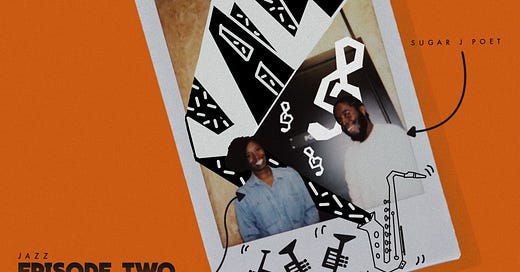



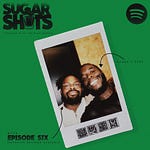
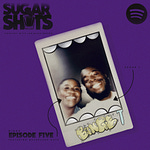
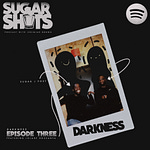

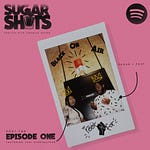

Share this post